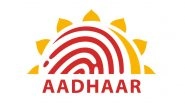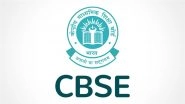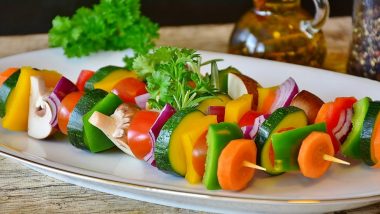Vegan is one of the hot trending topics these days, and it is even becoming a topic for debate in the world of health and wellness. Going vegan is also becoming popular due to many celebrities who have decided to eat plant-based food throughout their life. Even celebrities are opting to do away with animal-based diet, some of the famous fittest stars who have recently adapted veganism are Alia Bhatt, Anushka Sharma, Jacqueline Fernadez, Aamir Khan and there are many more in the list. Not only people are adopting a vegan diet, but they are also choosing a vegan lifestyle, which means boycotting of goods made by the parts of an animal. Now,'Is going vegan healthy?', scroll down below to know its pros and cons. Pros and Cons of Keto Diet: Brief Overview of Low Carb High Fat Ketogenic Food.
What is a Vegan Diet?
A vegan diet refers to eating only plant-based food and not consuming any food derived from animals like eggs, dairy products and gelatin. Some adopt this diet because of their love for the animal, while some of them choose this for health benefits. To enhance their health, some people are even opting for Pegan diet. A pegan diet is a combination of vegan and paleo diet; now paleo consist of food eaten during The Paleolithic Era, the olden period more than 10,000 years ago, where only those foods were eaten which can be gathered or hunted. These food include lean meats, fruits, vegetables, nuts and seeds and pegan does not support foods like grain, legumes, coffee and dairy products. When paleo is combined with vegan, it completes all the requirement of our body. In a plate full of pegan diet, main food items are fruits or vegetables, they are only topped up with a piece of meat, here the main course are vegetables, and meat is just a side dish.
However, here we are speaking strictly about vegan, which helps in reducing cholesterol and risk of chronic diseases like cancer, heart disease, etc. It is yet not proven that vegan diet will also increase the life span. Also, vegan food has to be strategically planned to get the adequate B12 Vitamins, Protein, calcium, iron, Vitamin D and Omega 3 fatty acids.
Pros
1. Weight Loss: A vegan diet is rich in fibre and helps to increase metabolic rate, thereby enabling weight loss.
2. Vegan foods are low in cholesterol: This diet contains no bad cholesterol and helps in making the heart healthy and keeps blood pressure in control which helps in reducing the risk of heart strokes.
3. Management of Diabetes: Vegetarian diet manages the blood sugar level which is one of the significant aspects of diabetes management.
Cons
1. Lacks in a few nutrients: Veggie food usually is poor in crucial nutrients like Omega 3 fatty acids, Vitamin B12, Vitamin D, etc. One has to incorporate artificial supplements to fulfil their body needs while going for a vegan diet.
2. More likely to develop food intolerance: People who opt for vegetable diet have more chances to get unacceptable towards certain food items, and they are more likely to get an allergic reaction and other health risks.
3. Difficult to source essential amino acids: People who go vegan face problem in deriving essential amino acids as amino acids can easily be derived by consuming less calorie in non-veg foods, whereas to make up for that equivalent amount of amino acid in vegetarian cuisine, vegans will have to consume high calorie. This might lead to weight gain. Most vegetarians make up for their essential amino acids by taking Branch Chain Amino Acids(BCAA) supplement provided they are working out.
(This article is written for an informative purpose and should not be substituted for medical advice. Kindly consult your doctor before trying any tips.)
(The above story first appeared on LatestLY on Feb 21, 2019 05:22 PM IST. For more news and updates on politics, world, sports, entertainment and lifestyle, log on to our website latestly.com).













 Quickly
Quickly


